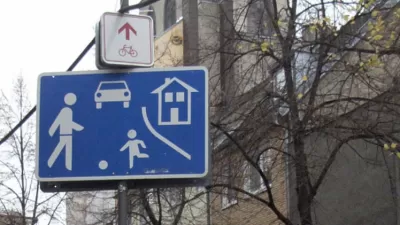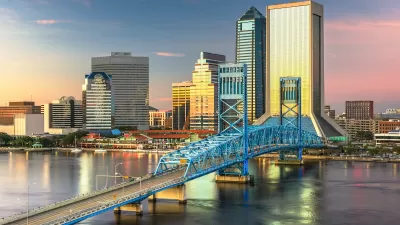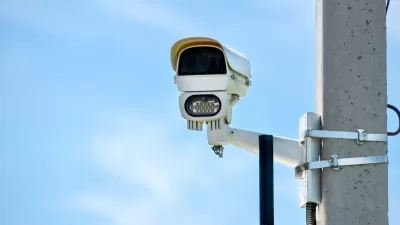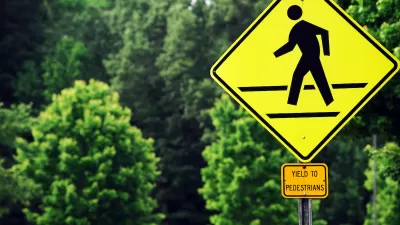To reduce pedestrian deaths, we must restore their rights as primary street users, argues a former NYC traffic commissioner.

Writing in the New York Daily News, Sam Schwartz, former NYC traffic commissioner, calls for "an end to jaywalking laws and restoring pedestrians to their rightful place atop the hierarchy of street users." Jaywalking laws, Schwartz claims, "do not improve traffic safety, and there’s evidence that pedestrian casualties are higher where the laws are strictly enforced." It is also well-documented that these laws often target people of color and can lead to violent or fatal arrests.
"A Smart Growth America study found that seven out of the top 10 most dangerous metro areas for peds are in Florida, with Orlando topping worst, Palm Bay fourth, and Daytona Beach fifth. They are all tough on jaywalkers," writes Schwartz, indicating that jaywalking enforcement doesn't correlate with pedestrian safety.
In the Netherlands, a different model has taken root. "A widely known engineer in traffic safety circles, the late Hans Monderman, radically challenged traffic engineering principles by getting rid of most traffic signals, signs and pavement markings in parts of several Dutch cities allowing people, cars, bike riders and others to negotiate sharing the space with each other as humans did until the early 20th century. The result: Drivers slowed down and crashes declined." Yet U.S. laws continue to privilege cars and ignore the safety of people outside of vehicles.
Schwartz's solution to America's rising pedestrian death rates: "get rid of jaywalking laws, design more streets for walking, slow traffic through design and once again declare pedestrians kings and queens of the road."
FULL STORY: Jaywalking: The crime that isn’t one

Maui's Vacation Rental Debate Turns Ugly
Verbal attacks, misinformation campaigns and fistfights plague a high-stakes debate to convert thousands of vacation rentals into long-term housing.

Planetizen Federal Action Tracker
A weekly monitor of how Trump’s orders and actions are impacting planners and planning in America.

In Urban Planning, AI Prompting Could be the New Design Thinking
Creativity has long been key to great urban design. What if we see AI as our new creative partner?

King County Supportive Housing Program Offers Hope for Unhoused Residents
The county is taking a ‘Housing First’ approach that prioritizes getting people into housing, then offering wraparound supportive services.

Researchers Use AI to Get Clearer Picture of US Housing
Analysts are using artificial intelligence to supercharge their research by allowing them to comb through data faster. Though these AI tools can be error prone, they save time and housing researchers are optimistic about the future.

Making Shared Micromobility More Inclusive
Cities and shared mobility system operators can do more to include people with disabilities in planning and operations, per a new report.
Urban Design for Planners 1: Software Tools
This six-course series explores essential urban design concepts using open source software and equips planners with the tools they need to participate fully in the urban design process.
Planning for Universal Design
Learn the tools for implementing Universal Design in planning regulations.
planning NEXT
Appalachian Highlands Housing Partners
Mpact (founded as Rail~Volution)
City of Camden Redevelopment Agency
City of Astoria
City of Portland
City of Laramie





























